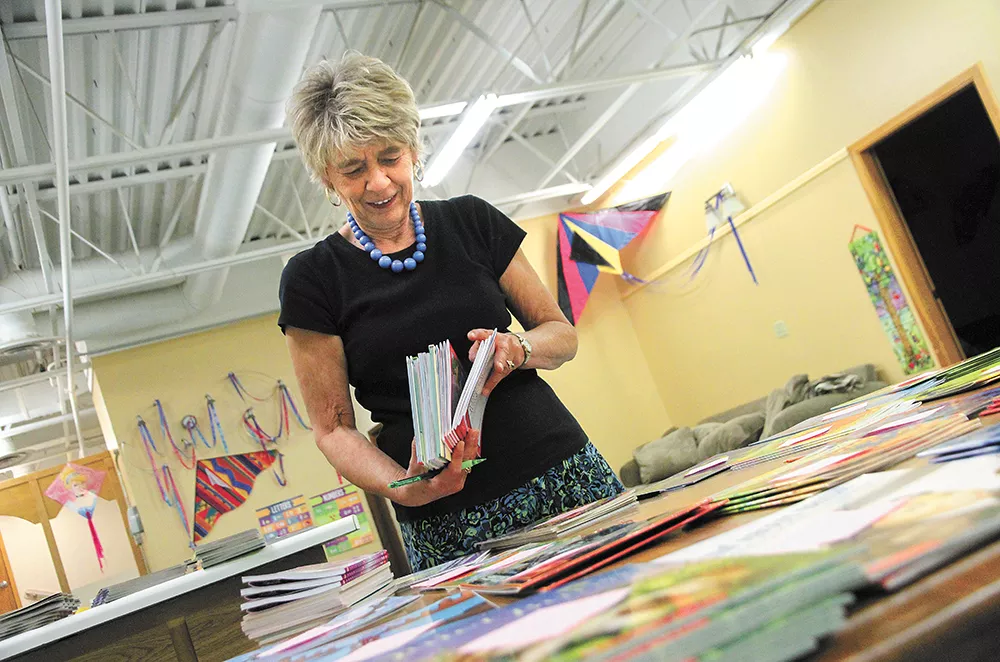Sometime in the summer of 2016, if all goes according to plan, Marilee Roloff will retire as CEO of the Eastern Washington and North Idaho chapter of Volunteers for America with a big party.
It won't be a celebration of her 31 years with the organization, the past 20 as the boss, but of a grand opening of the new VOA Haven. It's being built in conjunction with Catholic Charities' Buder Haven, offering 100 new beds for homeless men and women with special needs ranging from chemical dependency to mental illness and developmental disabilities. It's the kind of collaboration between Inland Northwest nonprofits that makes Roloff proud.
Roloff — always quick with a joke, and a passionate description of VOA's work — told us about what's changed since she arrived in Spokane, and what she'll miss about serving the region's neediest kids and adults.
INLANDER: Why retire?
ROLOFF: Well, I'm old! There's that! I can get Medicare next year, OK? As much as I'm enjoying this life, I'm tired. I'm getting tired. I don't know if I've run out of ideas, but I don't feel as creative as I once did. And I certainly don't have the energy that I once had. I've had enough sleepless nights.
What's been the most eye-opening aspect of your job? What would others be surprised by?
The longer I'm here, the more I'm convinced that, for the most part, all of the people we serve probably had [a rough] first three or four years. If you could go back and see what was happening, I'm pretty sure that a lot of our people had what they call 'adverse childhood experiences.' The longer I'm here, the street kids don't look so different to me than the single women at Hope House, or the men in our chronically homeless housing... If I had a magic wand, I would make everybody's first years perfect. I think those adverse years set people in a certain path. And those of us who didn't have that kind of childhood should just be counting ourselves lucky.
How did growing up in Creston, Washington (population 236 in 2010), lead to your adult work?
I came from a small town, a lot of school and church work. A church that preached taking care of the poor and caring about one another. And that kind of took. And here I am. [There were] a lot of opportunities to do a lot of things. My own children went to high school here [in Spokane], so they didn't get to do everything. When you're in a small town, you do. You can be a not very good clarinetist, and be in the band. You can be a not very good basketball player, and be on the team. You can get involved in a lot of things, and looking back, that's probably great training for a CEO, because I don't have to be particularly good at any one thing, but I have to know something about a lot of things.
Have the lives of street kids in Spokane changed much since you started working with them in 1985?
The drugs change. What else changes? Not much more. The majority of kids come from situations where those first few years were not good. Lots of family conflict. Lots of dad in jail. Lots of mental illness. I always have to say, though, that's the majority. There can always be a kid who had a very healthy home. Anybody's kid can have a mental illness; anybody's kid can get into drugs. But those are the rarities here... The services available to kids outside of a place like this, in a broader system, the services have decreased and decreased. There used to be a lot more family reconciliation people. You used to be able to get into treatment. There were more resources.
How is the collaboration between local nonprofits in your experience?
Spokane is a really lucky size. For the most part, we all know each other. When I worked in Seattle, you couldn't possibly know all the players. It would be impossible. And I'm not saying I know every player here, but I know a lot of people. So you can know the major players and you can have relationships with them. And you can collaborate with them. And cooperate and share resources and information, and there's a lot more of that going on in town than I think most people would think of... I consider it a blessing to live in a community where the nonprofits for the most part are very cooperative.
Once you're retired, will you stay involved with Volunteers of America?
For the last 20 years, I've been orchestrating the collection of new children's books for the Christmas Bureau, and that has become my hobby. I'm a skilled children's-book shopper. I go online every day to find the deals for good books, not junk. So I'm sure I'll work on books. The question for me is, if I leave next summer, I'll be perfectly content working in my garden all summer and checking for books. I'm wondering what I'll do the day after Christmas, when it's cold and it's snowy. Then I'll be wondering more what to do.
How hard will it be to leave this work behind, knowing there's more work to be done?
I'm guessing I'll be able to get more involved in political issues. I'll have a little bit more freedom to speak my mind. So I hope to keep pushing on these issues. There's no reason children should grow up without a loving parent. There's no reason children can't be prepared for school. There's no reason our schizophrenic friends are homeless. There's no reason. We can solve these problems. They are not incurable. ♦

